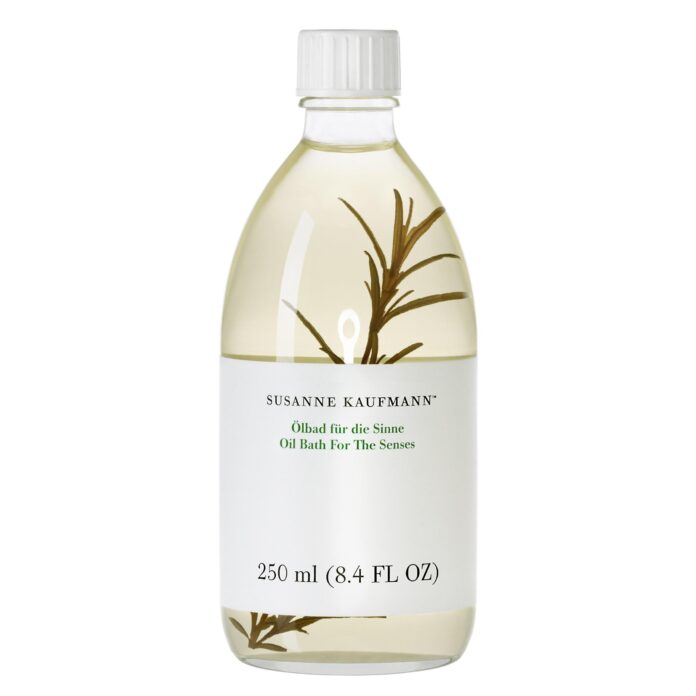In the realm of skincare, where the quest for relief from troublesome conditions often intersects with the lure of luxury, few products have sparked as much intrigue as the Susanne Kaufmann Oil Bath for eczema. Promising to soothe irritated skin and restore balance, this bath oil has garnered attention from those seeking solace from the relentless itch and discomfort of eczema. But does it truly live up to its claims, or could it inadvertently add to the irritation for some? In this exploration, we delve into the efficacy of this renowned product, examining its ingredients, user experiences, and the delicate dance between relief and irritation, to unveil whether this luxurious formulation is a sanctuary for sensitive skin or a potential source of frustration.
Exploring the Ingredients: What Makes Susanne Kaufmann Oil Bath Unique
The susanne Kaufmann Oil Bath stands out in the realm of skincare for its meticulously sourced ingredients that cater to sensitive skin, especially for those grappling with eczema. At the heart of this luxurious oil bath are nature’s finest botanical extracts, each chosen for their soothing properties. The combination of sweet almond oil and sunflower oil serves as the base, providing rich hydration without clogging pores. Enhanced with essential oils like lavender and chamomile, the formulation not only calms inflamed skin but also infuses a gentle, relaxing aroma that creates a tranquil bathing experience.
Along with these key components, the oil bath also includes a blend of natural vitamins and antioxidants that nurture the skin barrier. This unique formulation can be broken down into three core benefits:
| Ingredient | Benefit |
|---|---|
| Sweet Almond Oil | Deeply moisturizes and softens skin |
| Lavender Essential Oil | Calms irritation and promotes relaxation |
| Vitamin E | protects against oxidative stress |
This harmonious blend of ingredients not only addresses dryness and irritability but also enhances the overall bathing ritual, making it a luxurious addition to any skincare routine for those handling the challenges of eczema.

The Science Behind Eczema: How Skin Conditions React to Oils
The connection between skin conditions and oils is a nuanced domain within dermatology. Essential fatty acids, found in various natural oils, can have a dual role for eczema sufferers. **For some individuals, these oils are beneficial**, offering relief and hydration to parched skin. they help to restore the skin’s lipid barrier, which is often compromised in eczema patients. On the other hand, **certain oils may exacerbate symptoms**, leading to increased irritation or allergic reactions in sensitive skin. Therefore,it is essential to consider both the quality of the oil and the individual’s unique skin chemistry when selecting products for eczema management.
When examining the effectiveness of products like the Susanne Kaufmann Oil Bath, understanding the oil composition is crucial.Many formulations may include ingredients such as:
- Jojoba Oil: Mimics the skin’s natural oils, promoting hydration.
- Sunflower oil: Rich in linoleic acid, which is known for its anti-inflammatory properties.
- Coconut Oil: Provides moisture and has antimicrobial properties,yet may cause issues for some.
To aid consumers in decision-making, here’s a simplified comparison of the oils:
| Oil Type | Benefits | Potential Irritants |
|---|---|---|
| Jojoba Oil | Hydration & Barrier Repair | Low |
| Sunflower Oil | Anti-inflammatory | Low |
| Coconut Oil | Moisture & Antimicrobial | Medium |
Ultimately, the efficacy of the Susanne Kaufmann Oil bath varies among users, underlining the importance of personalized skincare approaches. Observing how one’s skin responds is essential in discerning whether such oils are soothing or irritating.

User Experiences: Shared Stories of Eczema Relief or Discomfort
Many individuals have shared their stories regarding the Susanne kaufmann Oil Bath, reflecting a spectrum of experiences that range from soothing relief to unexpected irritation. **Sarah**, a longtime eczema sufferer, described her first encounter with the oil bath as transformative. She noted that after just one use, her skin felt considerably more hydrated, reducing the typical tightness that accompanies her flare-ups. Though, not all users echoed this sentiment. **Mark** experienced a different reaction; he reported stinging sensations promptly after request, followed by redness that persisted for hours, urging him to discontinue use. This dichotomy in experiences suggests the necessity for users to approach the oil bath with caution, as individual skin types can react unpredictably.
To further illustrate the varied user responses, consider the following insights from a recent survey conducted among eczema sufferers:
| User | Experience | Outcome |
|---|---|---|
| Emily | Comforting and calming | Improved skin texture |
| Aiden | Temp irritation | flare-up necessitating treatment |
| Lena | Neutral effect | No change noticed |
These shared stories highlight that while some users find relief through the oil bath, others face complications. The importance of patch-testing new products before full application cannot be overstated, as it might prevent discomfort for those with sensitive skin.

Expert Recommendations: Best Practices for Using oil Baths for Sensitive Skin
When utilizing oil baths for sensitive skin, especially for conditions like eczema, it’s essential to follow **expert recommendations** to maximize benefits while minimizing irritation. Here are some key practices to consider:
- Patch Test First: Always perform a patch test on a small skin area before full application to ensure no adverse reactions occur.
- Choose the Right Oils: Opt for gentle,natural oils such as jojoba or almond,which are less likely to irritate sensitive skin.
- Control Water Temperature: Use lukewarm water to prevent exacerbation of skin irritation and maintain moisture levels.
- Limit Duration: Keep oil baths to a manageable duration—around 15 to 20 minutes—to avoid overwhelming the skin.
- Moisturize Immediately: Follow up with a suitable moisturizer to lock in hydration after the bath.
Additionally, maintaining a consistent routine can definitely help your skin adapt and respond better to treatments. Here’s a simple table to guide you on the frequency of use based on skin condition:
| Skin Condition | Recommended Frequency |
|---|---|
| Dry Skin | 2-3 times a week |
| Eczema | 1-2 times a week |
| General Sensitive Skin | As needed |
Final Thoughts
the Susanne Kaufmann Oil bath for Eczema positions itself as a potential ally for those wrestling with the discomfort of dry, irritated skin. While many testimonials sing praises of its soothing properties, individual experiences vary widely. The synergy of natural oils and carefully selected ingredients aims to nurture and hydrate, but as with any skin-care product, the key lies in understanding one’s unique skin needs. As we navigate through personal journeys with eczema, it remains essential to approach new treatments with an open mind and an attentive ear to our skin’s responses.Whether you find solace in the gentle embrace of this oil bath or prefer to seek alternatives, may your path to comfort and relief be guided by knowledge and care. After all, the quest for skin wellness is a deeply personal journey, and every step taken is a testament to one’s resilience and commitment to self-care.


